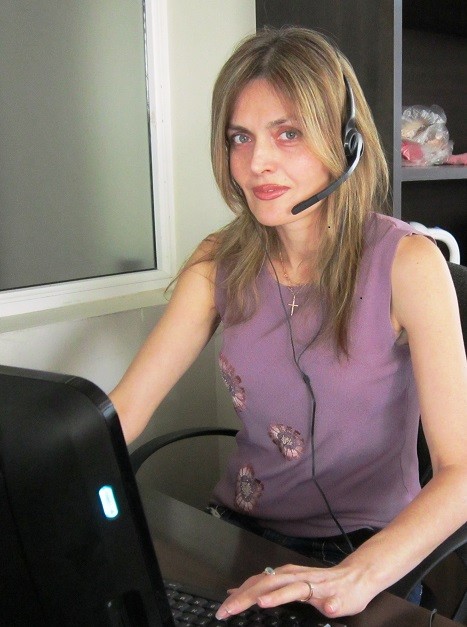
Georgia's Ministry of Labor, Health and Social Affairs (MOLSHA) call center receives up to 3,000 calls per day and is one of the primary means of keeping the public informed about health insurance and other social programs.
Maia Kereselidze, a call center specialist who has worked at the facility for two years, says that the lack of integrated data and service standards used to cause significant problems for callers. “Upon receiving a call, we had to search multiple databases and several websites to find information. Obviously, this increased call waiting time caused frustration and disappointment for the customers,” she explains.
In 2012, nearly 45 percent of incoming calls went unanswered and the overall quality level of the center was unsatisfactory. At MOLHSA's request, USAID's Human and Institutional Capacity Development (HICD) PLUS project worked with the ministry to transform the call center into a modern operation. The project team first worked with call center staff to reschedule shifts to ensure appropriate staffing at key times. The team then developed service level standards and a quality monitoring system based on global best practices, and provided customer service training to all staff.
The impact was quick. The rate of unanswered calls was cut in half and the average call waiting time decreased from 44 to 28.6 seconds, below the international standard of 30 seconds. At USAID's recommendation, MOLHSA developed an integrated IT system that allows staff to quickly retrieve a caller’s personal information and provide faster and more accurate information. The center also adopted a self-initiated code of ethics.
Kereselidze says that her work has never been as fulfilling as it is today, and she has seen a dramatic change in the call center’s performance. “We used to work under constant anxiety and stress," she says. "A new one-stop-shop database unifies the data of the civil registry agency, insurance programs, medical clinics, state benefits, disabled registry, etc. It allows rapid search and is much more comfortable and user-friendly.”
Thanks to Kereselidze and her colleagues, thousands of Georgians benefit each day from the improved call center.
The HICD PLUS project, which runs from September 2011-September 2015, helps to improve the performance of Georgian organizations in the areas of democracy and governance, economic growth, energy and environment, and health and education.







Comment
Make a general inquiry or suggest an improvement.